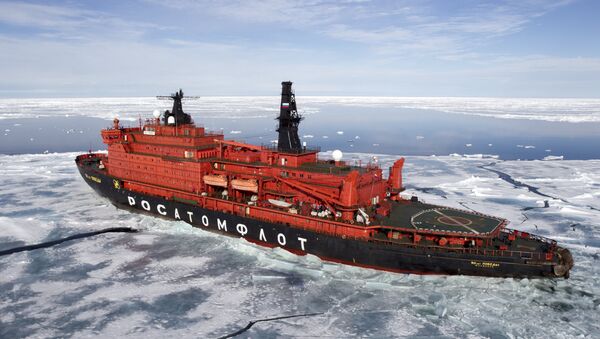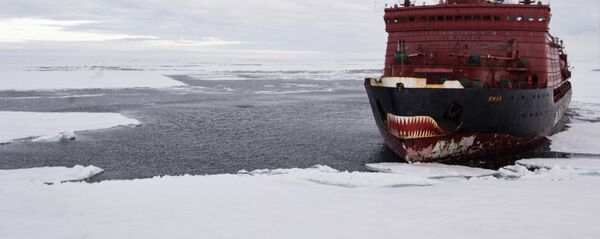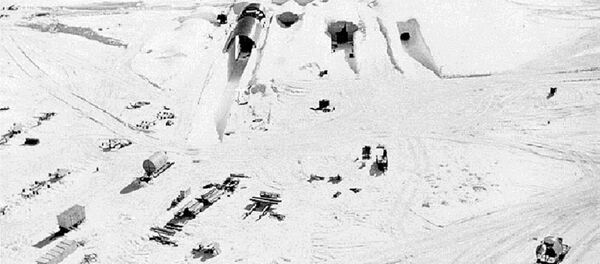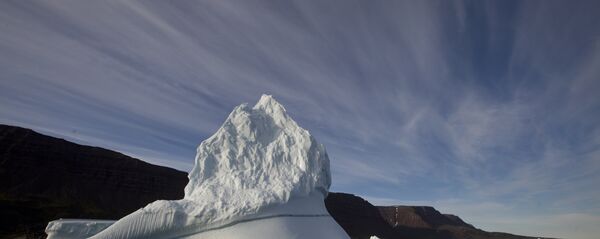According to Oldberg, Russia's presence in the Arctic is already strongest in terms of defense. The Russian Northern Fleet, based on the Kola Peninsula, is being enhanced with top-end strategic nuclear-powered submarines and new units specifically adapted to the harsh Arctic climate. Additionally, new permanent bases are being built, and Soviet-era bases are being re-established along the country's entire 4,300 thousand-mile-long Arctic coast, including Franz Josef Land and the New Siberian islands.
1st and 2nd Rank Ships of #RussianNavy and #Arctic Garrisons Equipped for #Telemedicine
— ISS Naval News (@NavalNews) December 8, 2016
LNR/Interfax, Dec 8, 2016https://t.co/cZEZSXQVUK pic.twitter.com/Ve9XTKNUM2
However, Russia has earned a reputation for being peaceful over the decades, and predisposed towards finding diplomatic solutions to conflicts in the region. Norway and Russia have cooperated on fishing quotas in the Barents Sea since the 1970s, which resulted in stable stocks. A new agreement was signed in October 2016. In 2010, a landmark agreement on the division of the Barents Sea and energy cooperation was signed after decades of negotiation. The parties have common interests in the energy sector due to cross-border deposits and the need for cooperation in developing deep-sea technology.
In recent years, the relations between Russia and its Arctic neighbors have been hampered by the West's sanctions. For instance, NATO member state Norway, which eagerly joined the EU and US in placing political and economic pressure on Russia, suffered from counter-sanctions: Norwegian food exports to Russia fell by over 70 percent in 2015. Instead, the Faroe Islands, which are part of the Danish Realm yet enjoy a special status within the EU, greatly increased exports to Russia due to non-participation in the sanctions policy.
Певек принял первый караван судов с грузом для строительства инфраструктуры плавучей атомной станции https://t.co/3EJCPkcV0x pic.twitter.com/FAQAb7Mydc
— Сделано у нас (@sdelanounas_ru) 20 сентября 2016 г.
Despite increased tension, Russia has continued to cooperate with the West in Arctic organizations, which do not deal with military matters. In the autumn of 2015, Russia chaired the Barents Euro-Arctic Council (BEAC) for two years, announcing trust, security, transparency and openness as its main priorities. Through BEAC, some of the contacts with the Nordic countries were preserved, which resulted in continued economic and environmental cooperation despite mutual coolness.
Unlike, say, the US, Russia has ratified the UN Law of the Sea Convention (UNCLOS). Russia made its first application for 1.2 million square kilometers already in 2001, claiming Lomonosov and Mendeleyev ridges to be offshoots of the Siberian continental shelf. In 2015, the Russian application was backed up with seismic tests, ground examinations and other scientific data. The problem is that Denmark and Canada also filed claims which overlap with Russia's. Whereas the Commission on the Limits of the Continental Shelf (CLCS) only decides on the extension of continental shelves, the conflicting claims must be resolved by the rivaling countries themselves.
#Kara Sea research station besieged by polar bears. More conflicts between humans and bears https://t.co/9nT9PInJ0b
— The Barents Observer (@BarentsNews) September 20, 2016





